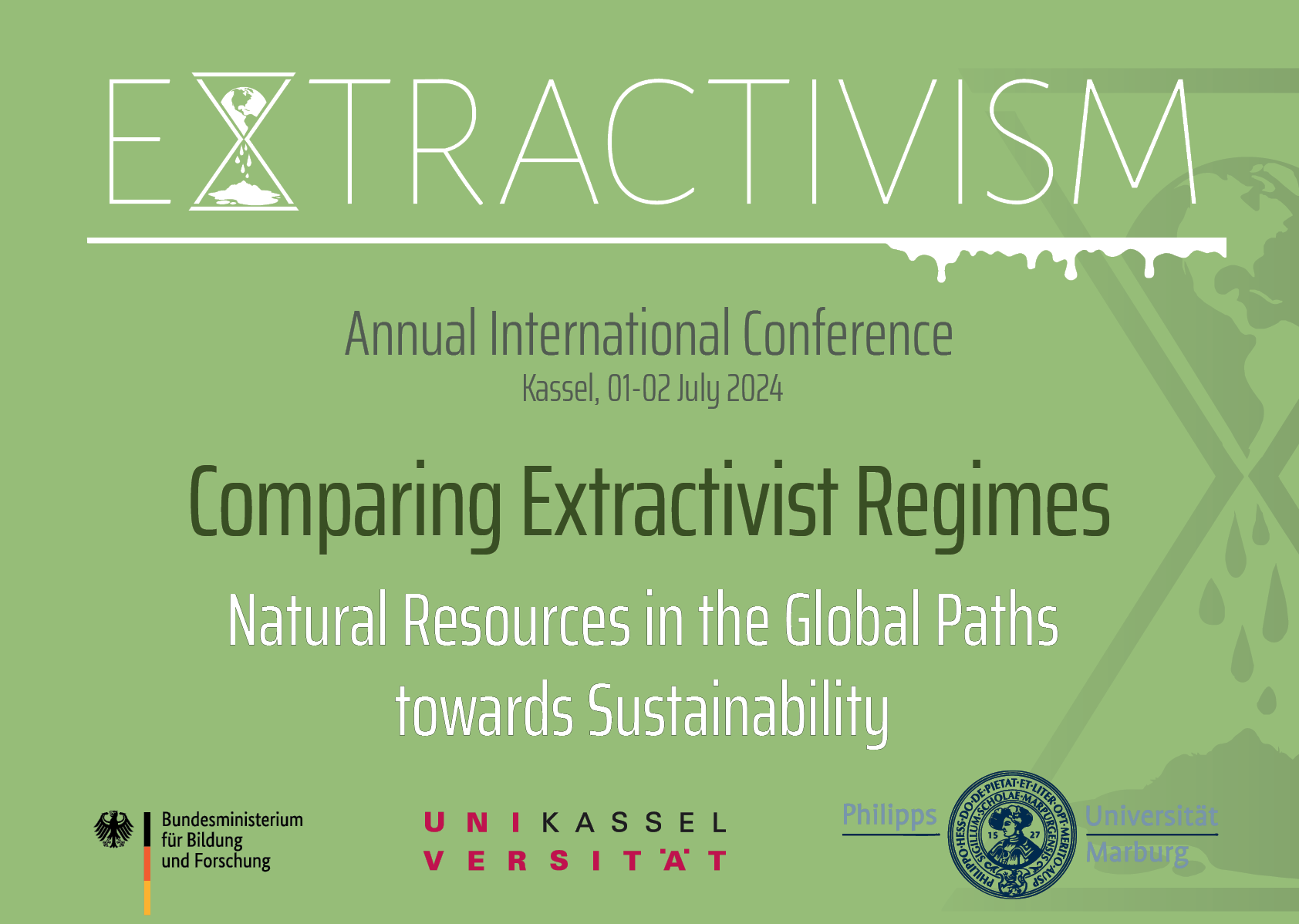The global hunger for non-renewable natural resources as well as the exploitation and export of raw materials shape the political and economic landscape of many societies in the Global South. However, these configurations are prone to crisis that reveal tensions, frictions and conflicts. Furthermore, these settings impede long-term possibilities for sustainable development. Latin America is a showcase in this regard: the region has been and still is highly dependent on raw material exports, which goes hand in hand with social inequalities, poverty, social exclusion, and marginality and eventually complicates sustainable and equitable development.
This and similar observations in different regional contexts have been widely debated in distinct disciplines and with different theoretical as well as methodological tool kits. However, these approaches seldom “speak” to each other: various regional perspectives focusing on particular world areas have developed independently from each other and brought about interesting and often complementary conceptual approaches, such as neo-extractivism, rentier-state, vent-for-surplus models, or the concepts of resource nationalism and neo-developmentalism. While each of these approaches highlights important factors in explaining the depth of resource driven development, the explanations of possible challenges, opportunities and limitations exist side by side, almost exclusively focusing on a partial set of variables within certain regional backgrounds. In doing so, they highlight and conceptualize particular and region-specific articulations such as statehood and political institutions, culture and identity, and economic factors.
The workshop brings together these different theoretical and empirical approaches from different world regions. The aim is to engage in an analysis of the social, cultural and economic factors that engender strategies, social struggles, patterns as well as configurations of natural resource-led development in a global context. The workshop wants to identify cross-regional similarities and differences of resource-based development models in a cross-area perspective in order to contextualize Latin American experiences.
The proposed workshop wants to discuss the following questions with a focus on Latin America:
- What are regional particularities and transregional similarities of resource-driven development? In what way is the exploitation and export of natural resources linked to internal conditions such as the balance of social forces, economic and political institutions, or culture, gender and identity, and what are local, national, global drivers?
- How can patterns and models of resource-driven development within various area contexts be conceptualized? How do existing approaches relate to and complement each another (e.g. rentier-state, neo-extractivism, resource nationalism, neo-developmentalism, neo-patrimonialism and post-neoliberalism)?
- What can Latin America learn from different approaches about the challenges, possibilities and limits of resource driven development models? And: under which socio-political, economic and cultural conditions is the shift from resource-driven development to non-extractivist self-sustaining development possible?
Contributions are invited from different disciplinary backgrounds such as history, political science, sociology and economics and from different regional contexts and area studies backgrounds. The workshop welcomes a broad range of topics, such as rent-based developments, global commodity chains and resource flows, rent-channeling, industrial policies, trade policy, social reforms and other issues related to the questions above.



